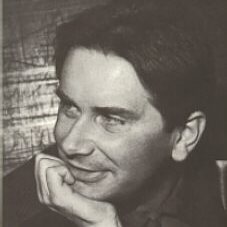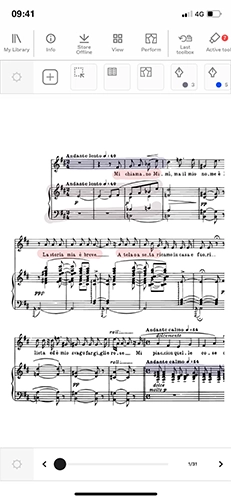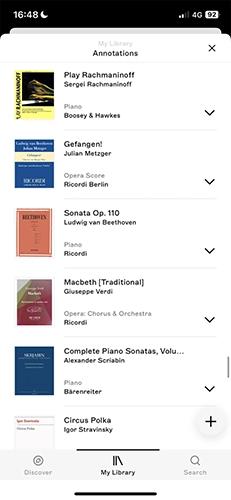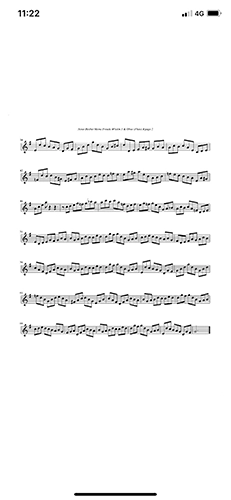
Tadeusz Baird
25 pieces at nkodankoda sheet music library
over 100k editions from $14.99/month
Hassle-free. Cancel anytime.
available on
nkoda digital sheet music subscription


Editions
Annotate
Library
Perform
100k+ available Editions
More about Tadeusz Baird
Tadeusz Baird began to study composition during the German occupation of Poland during World War II. Initially a student of Bolesław Woytowicz and Kazimierz Sikorski, he continued his studies after the war – between 1947 and 1951 – with Piotr Rytel and Piotr Perkowski at the State College of Music (currently the Music Academy) in Warsaw. He also studied piano performance under T. Wituski and musicology for three years at the University of Warsaw. He was one of the initiators and creators of the Warsaw Autumn International Festival of Contemporary Music, first held in 1956. In 1974 he began to teach composition at the State College of Music (currently the Music Academy) in Warsaw. He was promoted to full professor and became head of the composition department in 1977. One year earlier he had been chosen to chair the Polish section of the SIMC. In 1979 he became a member of the Akademie der Künste in Berlin. Tadeusz Baird won numerous distinctions for his achievements in Poland and abroad. In 1958 he was awarded the 1st prize in the G. Fitelberg Competition for his Four Essays for Orchestra (1958). He was a three-time recipient of the first prize at the UNESCO International Composers' Tribunal in Paris (1959 – for Four Essays; 1963 – for Variations with no Theme for symphony orchestra, 1961-62; 1966 - for Four Dialogues for oboe and chamber orchestra, 1964). He also garnered three Polish State prizes (1951 – for his 1st Symphony, 1950; 1964 - lifetime achievement award; 1970 – for his 3rd Symphony, 1969 and Five Songs for mezzo soprano and chamber orchestra, to words by Irena Poświatowska, 1968), an award of the Minister of Culture and Art (1962 – for Erotics, 6 songs for soprano and symphony orchestra to words by Małgorzata Hillar, 1960-61), a music prize of the city of Cologne (1963), the annual lifetime achievement award of the Association of Polish Composers (1966), the S. Kusewicki Prize (1968), the Arts Award of the Capital City of Warsaw (1970), an award from the A. Jurzykowski Foundation in New York (1971), the A. Honegger Prize (1974), the J. Sibelius Medal (1976), the Award of the Prime Minister of Poland, and the National Education Committee Medal (1979). Posthumously, in 1981, he was additionally decorated with the Order of the Banner of Labor - 1st Class. Among Polish composers of contemporary music, Tadeusz Baird was distinguishable for the deep respect he retained for tradition. This was manifested in his highly subtle referencing of the music of past ages – Baird demonstrated special admiration for Romantic, Baroque, and Renaissance music. The composer rendered his own compositions archaic by using early melodic phrases, but nevertheless created works that were highly effective in less tangible spheres – through emotion, impression, expression. His precisely and meticulously structured chords ring with exceptional beauty and his juxtaposition of musical timbres demonstrates unparalleled taste. Far from abandoning a modern compositional language, he rather deftly combined it with traditional musical elements. The entirety of Baird's music is very strongly lyrical, a trait that is most clearly manifested in the fully developed melodic lines, which are song-like in the best sense of the term. There is a work by Tadeusz Baird that encompasses all the mentioned characteristics in their full form. The work in question is the moving, beautiful 4 Sonety miłosne do slów Williama Szekspira / 4 Love Sonnets to Words by William Shakespeare for baritone and orchestra, written in 1956. There is little or no other music today that is as deeply lyrical, strangely expressive, and ultimately so intensely subjective.

Tadeusz Baird sheets music on nkoda
Edition/Parts
Composer/Artist
Part
Source
INSTITUTIONAL PARTNERS
PUBLISHERS PARTNERS
TESTIMONIALS































